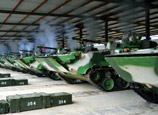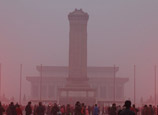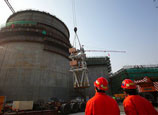
China's government-subsidized residential housing program was rocked by scandal once again earlier this month, this time by news that the former head of the housing administration bureau of Zhengzhou, the provincial capital of Henan Province, had acquired 11 affordable homes under his daughter's name.
In China, well-intentioned plans that look good on paper are often undermined by corruption, speculation, insider dealings and other illicit behaviors once put into practice. The country's ambitious affordable housing program, which was designed to supply low-income earners with quality homes at prices below those seen in the regular market, has become no exception to this general rule.
Until more wide-ranging protection and oversight mechanisms are in place to properly regulate the country's affordable housing scheme, the best thing authorities can do to prevent homes intended for the financially disadvantaged from falling into the wrong hands is to completely halt their sales and only allow them to be rented.
Over the past few years, the central government has been offering free land to developers who agree to construct low-cost housing units. With the government cutting land fees - which are normally the biggest expense for developers when it comes to building new properties - out of the equation and also limiting the profit margins property firms can earn from the sale of affordable housing units, the prices of such homes are quite reasonable for less well-off home buyers.
But although affordable houses may be priced relatively low when they first hit the market, there is nothing stopping buyers from selling them off second-hand at a much higher price than they originally paid. With land prices soaring and home supplies still inadequate for the country's huge demand the prices of affordable homes have grown quickly, making them ideal targets for unscrupulous officials and investors who can leverage their wealth or their power to snatch these properties away from deserving buyers.
 |
















 Buildings collapse after subsidence in S China
Buildings collapse after subsidence in S China


![]()
